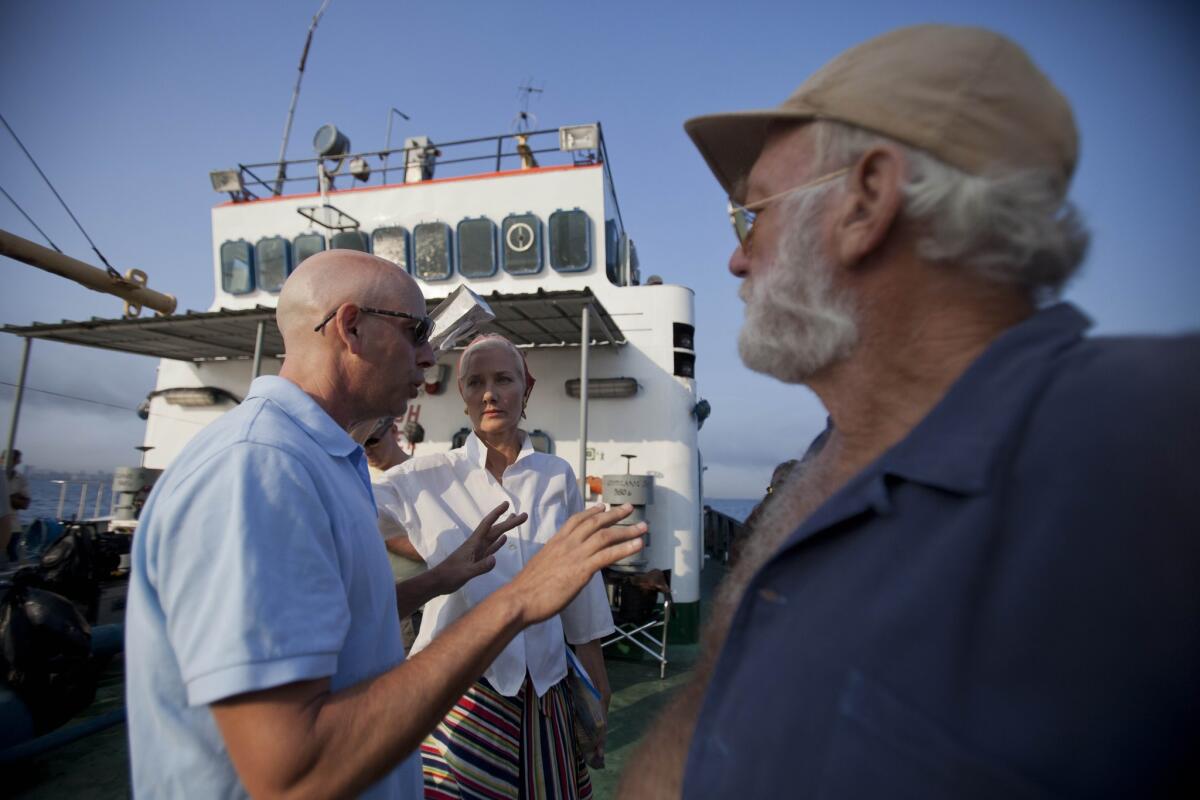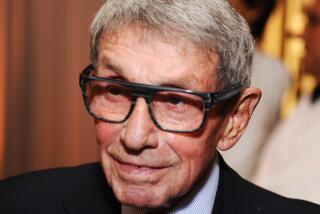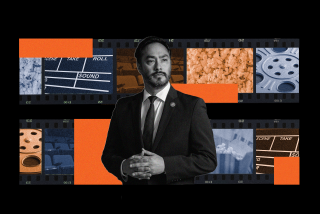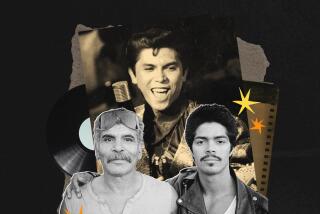Hemingway biopic breaks barrier with location shoot in communist Cuba

An Ernest Hemingway biopic shooting this month on the streets of Havana is the first feature film with a Hollywood director and actors to film on the island since the 1959 revolution that brought Fidel Castro to power.
The Associated Press reports that “Papa” director Bob Yari and his cast and crew could be found recently filming a gun battle outside Havana’s Government Palace.
“It was an absolute passion to actually make it in Cuba where everything that is in the script happened, where the finca [farm] is where [Hemingway] lived, where his boat was, all the spots from the Morro Castle to Cojimar where he fished,” said Yari, who was a producer of the Academy Award-winning “Crash.” “It’s all here, so trying to duplicate it somewhere else was not very appealing.”
The Cuban portion of the shoot wrapped up this past weekend. Giovanni Ribisi stars as real-life journalist Denne Bart Petitclerc, who became friends with Hemingway in the 1950s, when the novelist lived on a farm outside Havana. The two remained close until Hemingway’s suicide in 1961.
The United States has imposed a trade embargo on Cuba’s communist regime for four decades and past films set on the island, such as “The Godfather: Part II” have been filmed elsewhere.
Adrian Sparks, a veteran stage and film actor who plays Hemingway in the movie, said he had never before visited Cuba. “I grew up with this image of this evil, dark country somewhere in the mist,” Sparks says in an AP video. “To be here is to realize what an exquisitely beautiful country this is.”
Hemingway lived in Cuba from 1939 to 1960 and wrote “The Old Man and the Sea” there. The filmmakers were granted an exemption to the embargo by the U.S. Treasury Department because the film was classified as a documentary. The Cuban government also granted the filmmakers rare access to the inside of Hemingway’s rural home. Now a museum, most visitors are allowed only to peer into the home through its windows.
Havana is famous for a cityscape that’s remained essentially unchanged since the 1950s, though much of the equipment for “Papa” was brought in from overseas.
More to Read
Sign up for our Book Club newsletter
Get the latest news, events and more from the Los Angeles Times Book Club, and help us get L.A. reading and talking.
You may occasionally receive promotional content from the Los Angeles Times.









